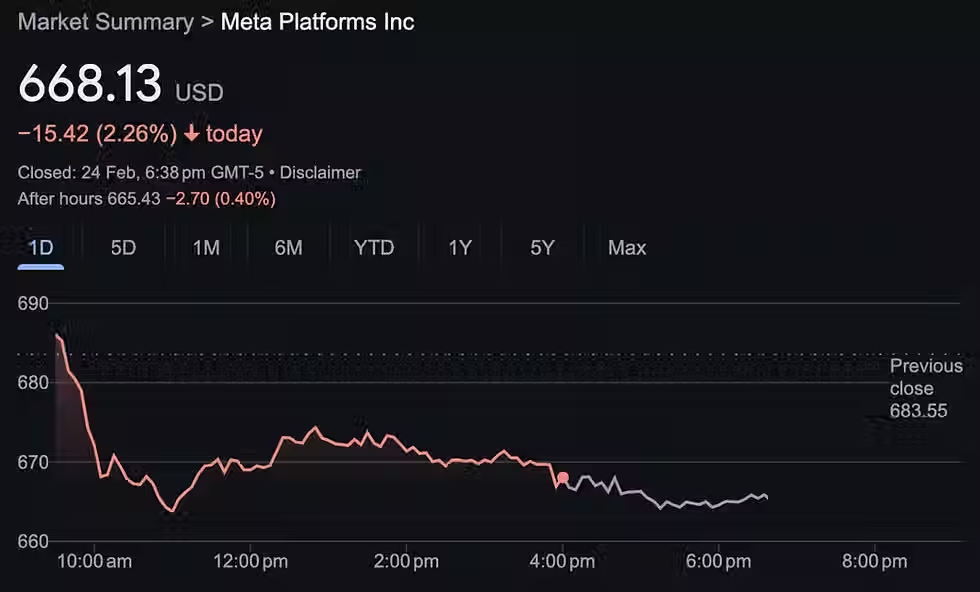Picking The Next 100% ROI Stock
- Buffett Online School

- Sep 13, 2023
- 4 min read

Choosing stocks to invest in wisely is essential to manage risk and maximize returns in your investing journey. We need to consider thorough research, consideration of your investment objectives, and a disciplined approach to avoid common pitfalls in the stock market.
Still, choosing which stocks to invest in relies on your criteria and preferences. Once you've established your financial goals, consider delving into an industry that interests you.
Dive into the latest news and trends that shape this sector daily. By doing so, you can gain valuable insights into potential investment opportunities.
At Buffett Online School, we also believe in investing in great companies you understand. Utilizing Free Investing Resources to help you start your financial freedom and investment journey is one of the best ways to learn.
Recently, Borwen shared insights and discussed identifying the next stock with a 100% return on investment (ROI).

The U.S. market is generally recognized for offering conditions deemed more favorable when compared to other needs for achieving substantial ROI. Over the past three years, an overall growth of approximately 105% has been observed in the U.S. market, underscoring its inclination towards more pronounced market fluctuations.

Nevertheless, it is crucial to acknowledge the presence of opportunities even in markets that may appear inert, such as the Singaporean market. To illustrate this point, we can focus on the case of iFast, a company listed in Singapore. Despite the market's apparent lack of dynamism, the share price of iFast exhibited a remarkable ascent due to the consistent growth in revenue and earnings over an extended period.
Why did the share price of iFast increase by 7.5 times when the earnings merely tripled?

The answer to this query lies in the concept of the earnings multiplier, commonly referred to as the price-to-earnings (PE) ratio. This multiplier serves as an indicator of market sentiment and expectations concerning future earnings. In the case of iFast, this multiplier experienced a multiplication of 2.5 times, contributing significantly to the substantial growth in share price.

What Causes Earning Multiplier Increase?

An increase in the earnings multiplier primarily hinges upon two fundamental factors:
Future Earnings Growth - the capacity of a company to project higher earnings.
Enthusiasm - excitement generated within a particular industry or sector, exemplified by the current fascination with artificial intelligence (AI).
Forecast of Future Earnings
Turning our attention to forecasting, we must acknowledge its inherent challenges and subjectivity. Therefore, a more straightforward approach is investing in a robust company with lower PE ratios than their historical averages.
This approach circumvents the need to predict which company will rise to prominence or experience a surge in future earnings forecasts.

Consider a hypothetical scenario wherein a company's PE ratio descends from 24 to 8 while its earnings remain static. In this instance, even without any alterations to the company's fundamental operations, the share price would escalate by a minimum of threefold.
This strategy presents a practical and accessible avenue for achieving substantial ROI without the necessity for intricate forecasting.
When you concentrate on well-established companies possessing PE ratios lower than their historical averages, you can position yourself to seize prospective opportunities for a 100% ROI in the stock market. This strategy is more manageable and also aligns harmoniously with fundamental investment principles.
Investment Strategy for Microsoft

In assumption, if you purchase Microsoft's company at a price-to-earnings (PE) ratio of 25 in 2022, earnings remain constant. The current PE ratio stands at 33, suggesting an increase in the company's valuation.

However, you can see that Microsoft's share price has not risen by the expected 31 percent based on the change in the PE ratio. Instead, it has surged by 42 percent. This discrepancy is attributed to the company's rising earnings over the years, which emphasizes the importance of investing in excellent companies at fair prices rather than fair companies at fantastic prices, echoing Warren Buffett's wisdom. An ideal company exhibits consistent growth in various metrics, including earnings, return on equity, net income, and financial health.

The significance of this approach lies in the potential for substantial returns over time, as exemplified by a company growing its earnings by 30 percent annually. Such growth can lead to significant capital appreciation, even if the initial valuation is fair rather than exceptionally cheap.
The preference for investing in companies with solid growth prospects, even if their valuations are fair, as this approach can yield substantial returns over the long term. Moreover, it is advisable to assess periodically and, if necessary, rebalance investments to optimize returns and mitigate risk.
Investing In A 100% Company
Understanding investing in a 100 percent company cannot be overstated. It is not solely dependent on luck or perfect timing, although timing does play a role to some extent. A critical factor in successful investing is avoiding lousy companies, as they carry a high level of risk and can be akin to gambling.
It's important to distinguish between luck and skill. In contrast, luck can temporarily boost the stock, and actual investing skill lies in identifying and holding companies with consistent, year-over-year earnings growth of at least 15 percent. Companies can double in value within five to six years.
Valuation is another crucial consideration. To determine if a company is overvalued, you can analyze its multiplier, comparing it to the five-year average. Buying a stock at least 20 percent below the five-year average can provide a hidden upside potential when the multiplier returns to normal.
However, even if you find a great company at a fair price, it can still be worthwhile if you don't overpay.
In summary, successful investing involves finding companies with solid and consistent earnings growth and avoiding lousy companies with high risk. Valuation is also buying reasonably, which can provide a significant upside.
You can apply similar principles to evaluate its investment potential, whether a company is in Singapore, Vietnam, Japan, or Hong Kong. Ultimately, it's about minimizing risk and maximizing your chances of long-term success in the stock market.
Join Our Free 2-Day BOS Value Investing MBA
At the Buffett Online School, we believe in learning the right investing mindset and system to cultivate emotional detachment and grow our wealth safely and substantially in the long run.
Our next 2-day BOS MBA Value Investing Online Bootcamp is happening soon! We will teach you how to use Warren Buffett's proven investing method to maximize your portfolio.
Remember, you can cultivate the right investing mindset and unlock your potential to build wealth through intelligent investing. Together, we can create a network of educated investors who make informed decisions and contribute to their financial well-being!
In the meantime, feel free to check out some of our blog posts to continue learning. You can also join our BOS Telegram channel for more investing insights!





Comments